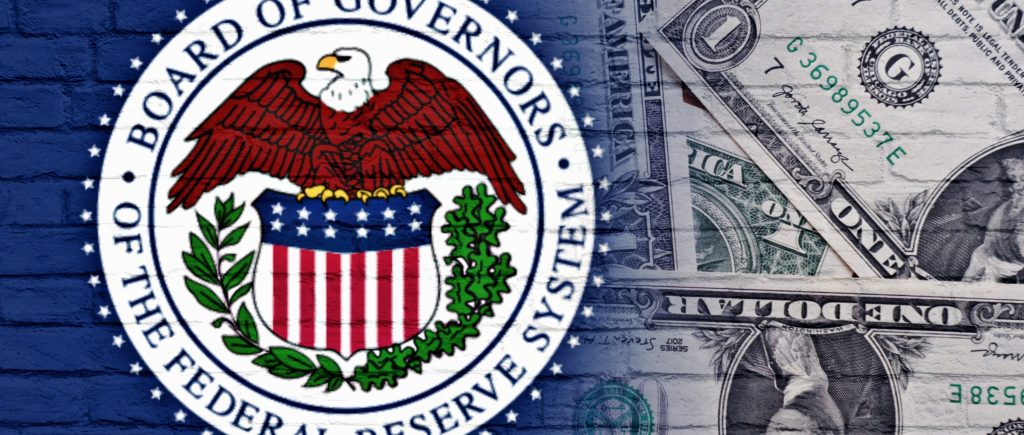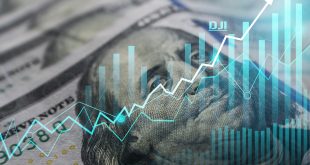The Federal Reserve has lowered interest rates at its Sept. 17-18 meeting, decreasing the federal funds rate by 50 basis points to 4.75 to 5.0%. This is likely the first of a string of rate cuts that should help buoy the U.S. economy. Interest rates are one of the biggest tools the Fed has for influencing the economy. By lowering rates, the Fed can stimulate economic activity, making it cheaper to borrow, or slow economic activity, making credit more expensive, which is a useful strategy to fight inflation.
While the Fed raised rates 11 times during the last tightening cycle, it’s easy to spot when markets really sat up and took notice that the central bank wasn’t kidding about recalibration monetary policy. In November 2021, cryptocurrency and many of the riskiest stocks peaked. When the Fed introduced restrictive monetary policies by increasing rates in 2022, this caused equity markets and cryptocurrencies to appropriately decline in valuation.
US stocks
The stock market will never not worry about future interest rates, as the cost of borrowing impacts all areas of investing, purchasing, and savings. While rates were moving higher, many stocks were moving lower, anticipating slower economic conditions. However, when investors got a clearer picture of the end of rising rates in 2023, the outlook became more optimistic. Major stock indexes such as the Standard & Poor’s 500 spent most of 2022 in a funk due to rising rates, but they fared well in 2023.
Amid rising interest rates, many unprofitable high-growth stocks had a rough 2022, and while prices firmed up in 2023, that doesn’t mean these stocks are still anywhere close to their prior highs. Profitable big-name stocks such as Microsoft, Apple, and others in the Magnificent 7 fared well in 2023 and 2024 despite the moves in rates, though they too had a lackluster 2022.
The expectation of lower interest rates has helped buoy rate-sensitive sectors such as banks and real estate investment trusts (REITs). Small-cap indexes such as the Russell 2000 have also fared well in recent weeks, as the market began to price in the possibility of rate cuts happening soon. However, the imminent arrival of lower rates hasn’t seemed to boost big tech names such as Apple, Microsoft, and Amazon, which fell well off their 52-week highs.
Market watchers are divided as to whether the Fed will lower rates fast enough to keep the economy from slowing too quickly. In the meantime, markets continue to re-adjust to the economic environment with the expectation that rates are poised to move even lower.
Cryptocurrencies
Cryptocurrencies have been often viewed as a cure-all for various issues, such as inflation, low interest rates, lack of purchasing power, and devaluation of the dollar. However, high interest rates scare investors away from riskier investments like crypto, and the lowering of rates is seen as a positive by the crypto investor community. Cryptocurrencies responded to reduced liquidity by falling when the Fed announced its intention to raise rates in November 2021 and throughout 2022 as the Fed aggressively followed through. The blow-ups of cryptocurrencies and exchanges such as FTX hammered traders’ confidence in these virtual assets.
Integrity in the banking sector in 2023 led many traders to bid up cryptocurrency, believing that the future path of rate increases would be less severe. As 10-year Treasury rates peaked in October 2023 and then fell, riskier assets rose, as the path to lower interest rates appeared clear and then actually did appear in September 2024.
One notable factor in the rise of cryptocurrency over the past year is the approval of spot Bitcoin ETFs by the SEC in early January. The expectation of the approval helped the cryptocurrency finish 2023 strong, and the inflows to the new ETFs powered the cryptocurrency to a new all-time high in March, though it has fallen back since.
Commodities have been well off their recent highs, as fewer supply constraints and higher interest rates work to take them down a few notches. However, the expectation of lower rates has helped keep oil from falling substantially below $70 a barrel in 2023 and 2024. Pricing has also been supported by petroleum-producing countries that have announced supply cuts and some overall tightness in the market.
Interest rates, inflation, and uncertainty create a stew of volatility for investors, making it essential to stick to the long-term game plan. For long-term investors, pullbacks represent attractive buying opportunities, and downturns can be an attractive time to add to your portfolio at discounted prices. Warren Buffett once said, “You pay a very high price in the stock market for a cheery consensus.”
In conclusion, interest rates rose fast in 2022 and 2023, and the Fed has lowered rates and is expected to do so for a while. Investors with a long-term investing horizon may view any downturn as an ideal time to pick up quality investments at bargain prices.

 Noor Trends News, Technical Analysis, Educational Tools and Recommendations
Noor Trends News, Technical Analysis, Educational Tools and Recommendations




